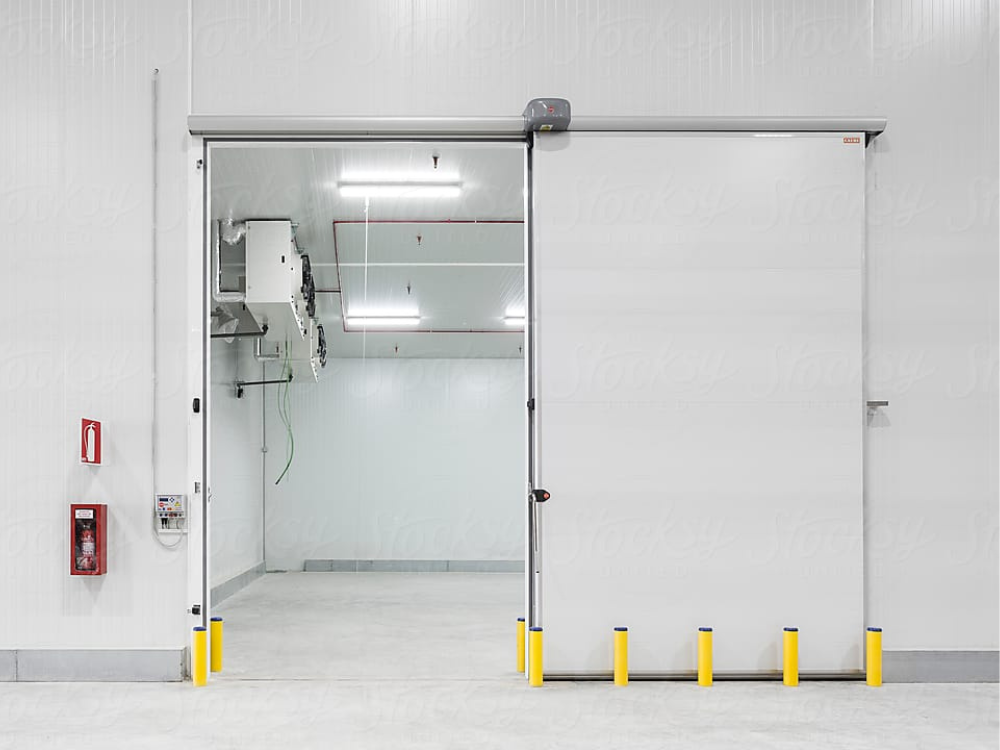Biodegradable coolant that helps to reduce cold chain energy consumption.
By Philip Gray
Refrigeration is essential. Without it, most food would go to waste and the safety and effectiveness of medicines would be compromised. However, cold chains—systems of temperature-controlled storage and transportation—also present significant environmental challenges.
Cold chains depend on constant temperature control, which requires vast amounts of energy. Refrigeration (including air conditioning) accounts for around 17% of the world’s energy demand, much of which is sourced from fossil fuels. As a result, refrigeration contributes to nearly 10% of global greenhouse gas emissions. This creates a dangerous feedback loop. By trying to keep our foods and medicines cool, we are warming the planet, and the more we do that, the more cooling we need.
For more on the air-conditioning-global-warming paradox, see : This Indian startup designs energy-free air conditioning systems using terracotta
Beyond its energy use, refrigeration also relies heavily on synthetic cooling gases—hydrofluorocarbons (HFCs). While HFCs are effective at cooling, their global warming potential is thousands of times greater than that of carbon dioxide.
Polystyrene coolers—commonly used for transporting temperature-sensitive goods—are made from non-biodegradable plastics that cannot be easily recycled. They also often fail to maintain stable temperatures over long distances. In the pharmaceutical industry, cold chain disruptions result in losses of approximately $33 billion annually. The food industry faces even higher losses, with an estimated $121 billion lost each year. These inefficiencies not only result in unnecessary waste, but also contribute to food insecurity and public health risks in many parts of the world.
Colombian startup NanoFreeze has developed a bio-based coolant that freezes at higher temperatures and remains frozen for longer than regular ice. Their bio-nanotechnology helps to bind ice crystals together more efficiently, allowing for better and longer temperature retention. Whereas regular freezers generally operate between -18ºC and -14ºC, NanoFreeze coolant freezes at just 2ºC. It also remains frozen at room temperature for twice as long as regular ice. Because it is bio-based, NanoFreeze is completely biodegradable and can even be disposed of as plant fertilizer!
To maximize its impact, the company has developed a range of products suited to different cold chain applications:
NanoFreeze Cold Coats: Thin, interconnected ice packs that wrap around perishable goods within their original packaging, ensuring stable temperatures during transit.
NanoFreeze Panels: Modular, interlocking panels that fit onto the walls of fridges, cold rooms, and containers, significantly improving energy efficiency.
The NanoFridge: A lightweight, portable medical fridge capable of holding up to 240 vaccines. Designed for extreme conditions, it can maintain required temperatures for up to 72 hours and can be fitted with backpack straps, making it ideal for delivering life-saving medication to remote areas or during natural disasters.
By significantly improving temperature retention, NanoFreeze technology helps reduce energy consumption across cold chains. For example, when NanoFreeze Panels are installed in a standard fridge, they can cut energy requirements by up to 50%. As industries transition to more sustainable practices, solutions like NanoFreeze offer a practical way to lower energy use while maintaining safety and efficiency.
More stable temperatures during transport and storage also help reduce spoilage, which is especially critical in regions with unreliable electricity or limited access to refrigeration infrastructure. Small-scale farmers can extend the shelf life of their produce, while clinics and hospitals can worry less about vital medication being spoiled.
However, like any solution, NanoFreeze is not without its challenges. Although the coolant itself is biodegradable and can even be used as plant fertilizer, it’s important to consider the full environmental footprint of the product—including its packaging. If the materials used to contain or transport the coolant are non-recyclable or fossil-fuel-based, much of the environmental benefit could be offset.
Additionally, while NanoFreeze products significantly improve energy efficiency by enhancing temperature retention, increased efficiency doesn’t automatically lead to lower energy consumption. In fact, without careful implementation, it may encourage an overall expansion in refrigeration use—allowing us to cool more goods, over greater distances, and for longer periods of time. The so-called ”Jevons Paradox” could undermine the environmental gains by increasing the total cooling load rather than reducing it. To avoid this, NanoFreeze must be positioned not just as a performance enhancer, but as a tool for limiting energy use within cold chains.
Finally, the technology must not be limited to large logistics companies or high-end medical supply chains. Smallholder farmers, rural clinics, and underserved communities—who are often most vulnerable to spoilage, power outages, and supply chain disruptions—stand to benefit the most from affordable, reliable cold storage. Ensuring these groups can access, afford, and effectively use NanoFreeze solutions is key to realising the environmental and humanitarian benefits of the technology.
We cannot afford to stop cooling—but we must start cooling smarter. If implemented strategically, equitably, and with attention to the full lifecycle of its products, NanoFreeze could be an important middle-ground in the transition to emissions-free cooling.

